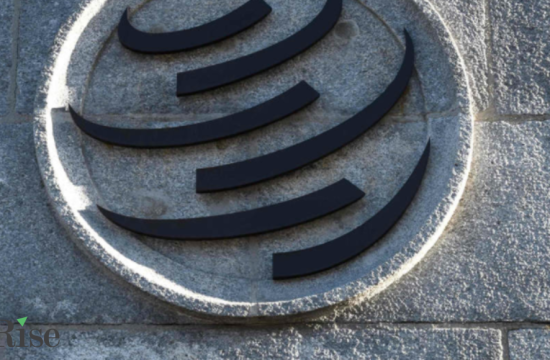
If there’s a magic bullet to two-parent families getting by on one salary, especially in these tough economic times, it’s controlling cash flow.
Couples who succeed at either saving one salary or living on one paycheck are very disciplined about spending.
They use several strategies to make living on less work while they pursue a critical goal. They mostly agree that substantial investments in your future require substantial financial adjustments.
A key part of success as a single-income family is having a backup plan in case that one paycheck dries up.
More from Invest in You:
How to build an online business doing what you love best
Inadequate emergency funds even skimpier under the pandemic
How to buy a home with low or even zero down payment
Bethany Serene Wright, 27, who’s employed in medical education, has two options in case her company goes under: working at a medical school, where her former manager now works, or returning to funeral home work. The Dallas resident is a licensed funeral director and embalmer. Either option would mean a salary cut.
Josiah Barlett, 28, who lives in Mount Vernon, Washington, said he’s “a fearful thinker, not a risky [type], and we have multiple ‘bug-out’ plans.”
For instance, Bartlett says he and his wife would rent out their house and buy an RV if they could no longer afford the monthly costs. “We’ve talked about moving in with family,” he said. “When you talk about no money or no income, you’re talking about doing something really hard.”
A workable one-income life doesn’t happen automatically. “It took us six years of our marriage on one income to finally get to having no debt except our mortgage,” Bartlett said.
Another critical component: mindset.
Keeping their costs as minimal as possible helps mitigate the anxiety, Bartlett says. “I used to tell my wife, ‘In a pinch, I could work at McDonald’s and we could get by.'”
Albuquerque, New Mexico, resident Vivek Gulati, 42, and his wife are serious about meditation, a practice he credits with their assurance and open conversations about finance. “Somehow, things always work out if you’re doing something life-supporting,” he said.
Here are ways families today get by on one income.
No man is an island
Living on one income prepared his family for the pandemic, Bartlett says. He gives a shout-out to the FIRE (financial independence, retire early) movement for teaching him to live at a minimum, which allows his wife to be a stay-at-home parent.
“A lot of the attitudes and the information people pass around [in financial independence groups] kick-starts you,” he said.
Most of us live a life of considerable waste, says Bartlett, a media broker. “Once you tug back, you realize this is totally possible.”
Covid-19 did not have much impact on their budget, since they were already used to making all their own meals and buying very little.
The couple employs a grab bag of cost-cutting measures. His wife uses her skills as a licensed cosmetologist to barter for fresh eggs, milk and goat cheese. Bartlett shops on Craigslist for secondhand clothes for their three young children.
Kids’ clothes can be tantalizingly cute, Bartlett says, but “you have to tell yourself no,” he said. “If it’s not worn out, I don’t get rid of it.” Bartlett still has clothes he wore in high school. “We’ve never been super coupon folks, but have always been pretty frugal,” he said.
You may have more time and skills than income. In that case, see if you can trade either for cash or goods, Bartlett says.
Bartlett has cleared trees and done other odd jobs in his community to supplement his fluctuating salary, which is under $ 60,000.
The best thing you can do, says Bartlett, is to build community. “Every time I needed extra work, I just let our community know and I would suddenly have multiple avenues for making ends meet,” Bartlett said.
Ability and energy are key, he says. “Invest in other people,” Bartlett said. “It’s totally possible.”
Cost control
For her part, Wright earns the bulk of her family’s income. Her husband, Benjamin, 28, has been a stay-at-home parent for the couple’s 5-year-old twin sons since they were born.
The coronavirus has cut into the business of Bethany’s company. Since surgeons can no longer travel to the facility to train, she is unable to host events. Instead, the firm has begun partnering with a technology company and now uses a live-streaming platform for medical education.
She says her salary, about $ 60,000, is more than enough for their life in Dallas, where they own a three-bedroom home. A family of four in Dallas County would need $ 72,000 to attain a modest yet adequate standard of living, according to the Economic Policy Institute’s family budget calculator. Their mortgage payment, including property tax and homeowner’s insurance, is $ 575. Before they purchased the house for $ 70,000, they lived with Benjamin’s parents and paid $ 275 each month to rent a room.
Communication is key. They have regular relationship check-ins to exchange their thoughts and feelings, and “be sure our feelings are on the same path,” Bethany said.
Benjamin took a break from work but is now back to producing items for his Etsy shop. He uses the time when the boys are napping to work. “It’s a couple of hundred dollars a month,” he said. “It pays for the car note.”
Bethany says she came from a poor family. “I was the youngest of six, and my father was on disability,” she said. “It amazes me now: I can buy what I want, when I want it.” Still, she is a big believer in living below your means. “We’re not very materialistic people,” she said. “We don’t own a lot.”
She was highly motivated to get through college and own a home, because she wanted to live differently.
“We always knew this was going to be our plan,” Bethany said. “We always knew I’m in such a specialized field, my income would be higher.”
Location, location, location
Being able to spend more time with family is priceless. To do that, Gulati works from home as a software engineer while his wife studies Ayurvedic medicine.
What made it more possible was moving from the San Francisco Bay Area last fall to Albuquerque, with its much lower cost of living.
“We couldn’t afford to buy where we were,” Gulati said.
Albuquerque may not be as rich in tech jobs as the Bay Area, but the veryaffordable cost of living made it a slam dunk. For $ 460,000, the couple bought a 2,500-square-foot house. A similar home would likely cost over $ 1 million anywhere near San Francisco.
Groceries are more expensive in Albuquerque, and if you travel, flights cost more. One advantage is that gas and other expenses are cheaper. For instance, their son used to take karate lessons for $ 85 a month before coronavirus. They had been paying $ 200 a month in California. “Those kinds of things add up,” Gulati said.
One benefit of the pandemic is that people are home much more and there are more opportunities to make money online, Gulati says.
“People could consider turning a hobby into a business,” he said. “Leverage your talents by teaching it online, and that can be anywhere in the world.”
Platforms such as Udemy and Skillshare make it relatively easy to offer an online class.
SIGN UP: Money 101 is an 8-week learning course to financial freedom, delivered weekly to your inbox.
CHECK OUT: Thanks to my side hustle, I paid off $ 38,000 in 18 months; now it’s a job that makes me six figures via Grow with Acorns+CNBC.
Disclosure: NBCUniversal and Comcast Ventures are investors in Acorns.









